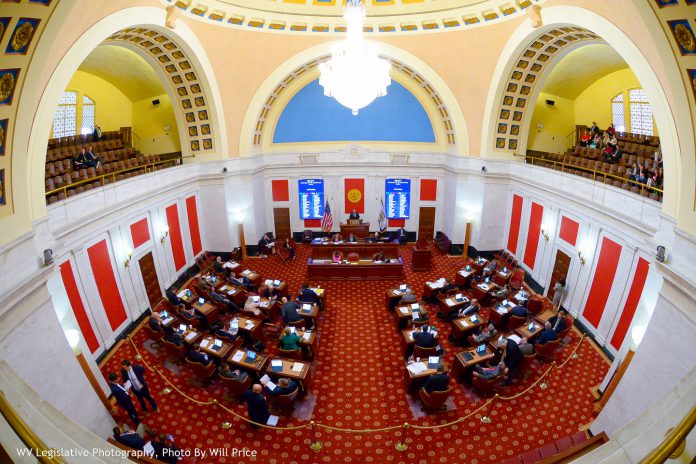As of 4 p.m., Wednesday, January 26, 2011, the 15th day of the 80th Legislature’s 1st Regular Session, 285 bills have been introduced in the Senate. Of these, one passed the Senate and has been sent to the House for its consideration. To date, one bill has completed legislative action. The bill passed by the Senate was: Senate Bill 60 would allow circuit court probation officers the ability to supervise sex offenders. The officers would be under the authority of the Administrative Director in the Supreme Court of Appeals.
A Sampling of Bills Introduced In the Senate
Senate Bill 100 would establish a program to promote veteran friendly communities. The Division of Veteran’s Affairs and the Veteran’s Council will establish this program that would encourage the development, availability, and use of veteran friendly services, benefits and assistance within the communities of this state.
Senate Bill 189 would adopt and establish the Interstate Compact on Educational Opportunity for Military Children. The act would be to remove barriers that military children face because of frequent moves and deployment of their parents. The bill would also establish the West Virginia Council for Educational Opportunity for Military Children to help the military families within this state.
Senate Bill 192 would protect consumers from price-gouging and unfair price practicing. This includes a special rule permitting gasoline suppliers or other motor fuels to sell products to the distributors at a price that does not exceed the average price of oil in the United States.
Senate Bill 194 would establish the Marshall University Forensic Science Center as the state- designated DNA testing facility in West Virginia. The bill would provide that the West Virginia State Police force only use the services of the state-designated facilities at Marshall University.
Senate Bill 197 would require the State Board of Education to create a school safety drug program. This program would be required to include annual drug testing of individuals before being hired, transferred or promoted to positions within a school. The bill would only apply to new employees hired after June 30, 2011.
Senate Bill 201 would authorize the creation of a new tax credit for eligible costs that occurred with the placement of service, residential, or non-residential energy efficient building property. If enacted, this bill could encourage the construction of energy efficient buildings and potentially decrease the total amount of energy consumed in the state.
Senate Bill 202 would create a commission that will develop a new program to help at-risk youths in select counties in West Virginia. This program would introduce prevention strategies for children through early intervention and diversion tactics.
Senate Bill 206 would establish the Office of Child Advocacy. This office would monitor and investigate the Division of Child Protective Services and Division of Juvenile Services by granting the office the right to certain records and information.
Senate Bill 207 would reduce the sales tax on food in West Virginia. Any sales of food or purchases of food or ingredients used for human consumption would be subject to decrease from three percent to two percent beginning on Jan. 1, 2012.
Senate Bill 209 would establish a misdemeanor offense for any person that is engaging in texting while driving, which would include: sending, receiving, or reading of any message. Conviction for a first offense would result in a fee of $50. A subsequent conviction for a 2nd offense would result in a fee of $100.
Senate Bill 233 would establish a tax credit for graduates of higher education institutions for a portion of the interest that is paid on student loans. The purpose is to attract and maintain talented youth in the state of West Virginia.
Senate Bill 239 would extend the period higher education institutions have to deposit money into research endowments.
Senate Bill 245 would establish financial assistance to wastewater treatment facilities in the Chesapeake Bay Watershed. These facilities are required by law to install expensive technology in order to meet very strict nutrient standards carried out by the Environmental Protection Agency (EPA).
Senate Bill 261 would call for a primary and general election to fill a vacancy in the office of the Governor. The bill specifies what happens in the event of the vacancy in the office and what actions need to take place to fill that seat.

